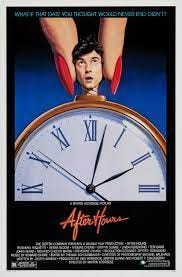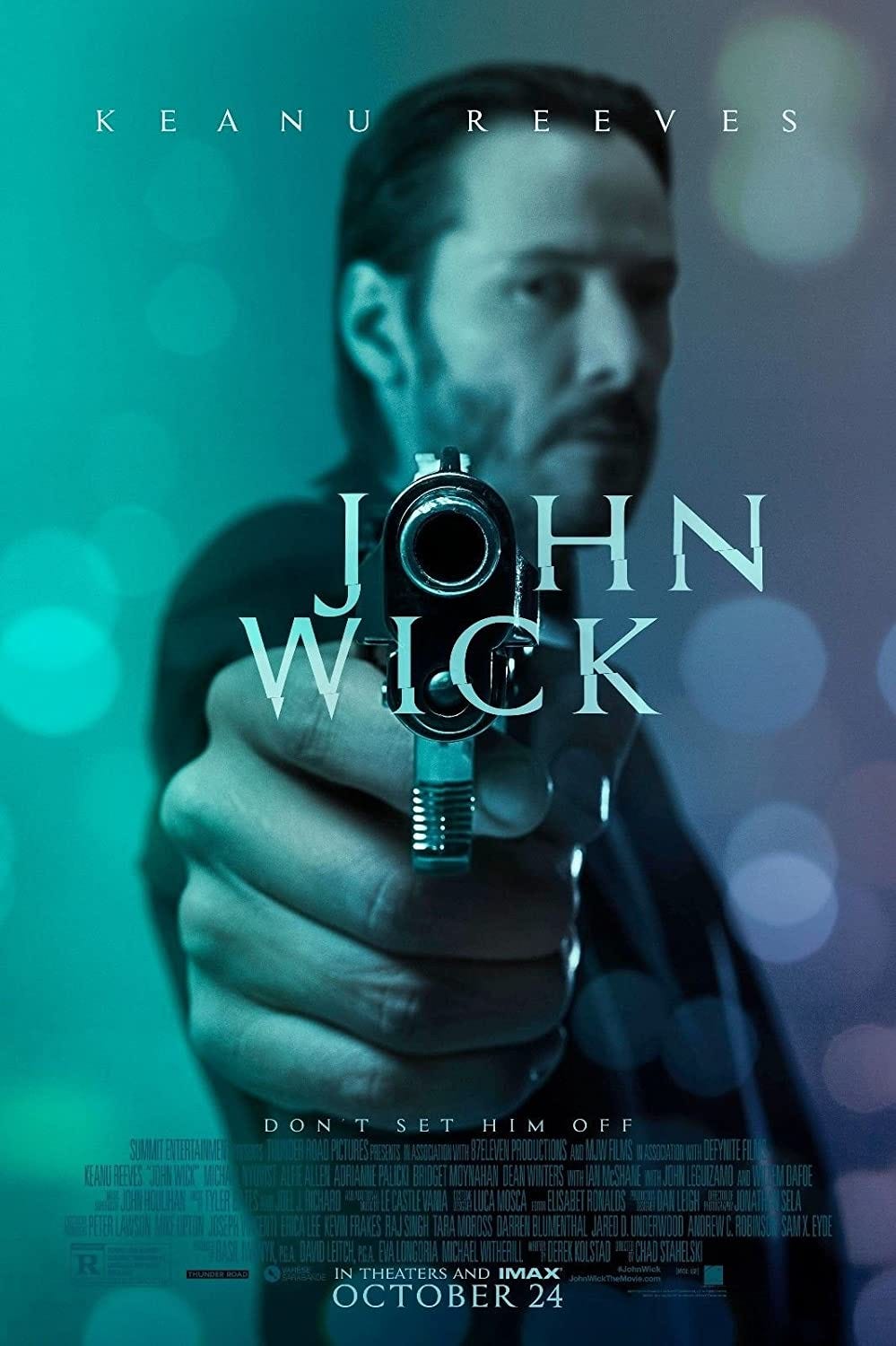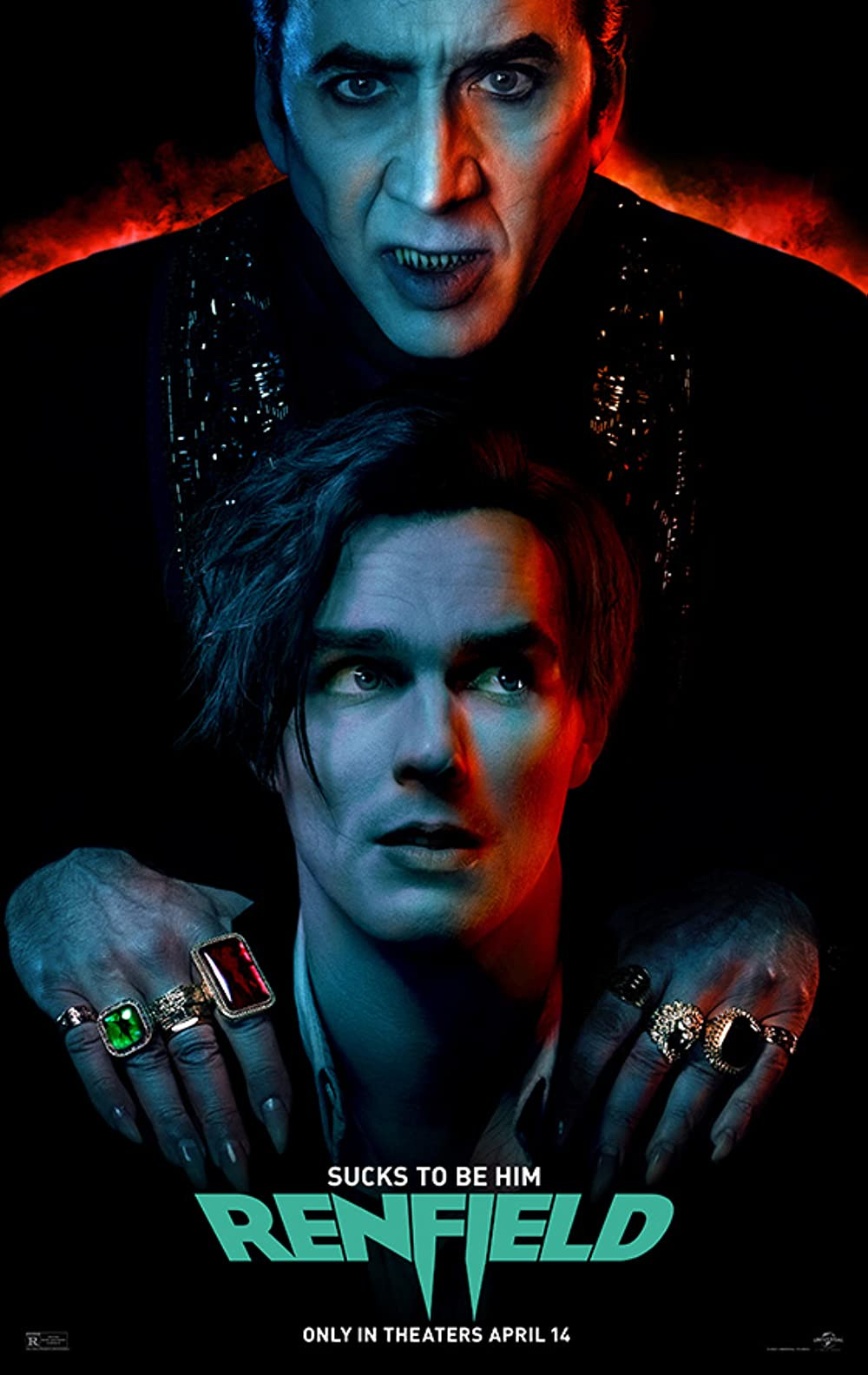A quieter month at the movies for me in general, as I traveled across Canada and busied myself with comedy and dating and a life in the outside (I know, gross). But still, there was plenty of time for action setpieces and horrific gorefests. This month, at the movies…
After Hours
Modern discourse on Martin Scorsese often fails to capture the breadth of his filmography. Typecast as the “gangster guy” in the minds of the general public, this label robs people of seeing great films of his that don’t fall into this category. Silence, Bringing Out the Dead, and The Last Temptation of Christ are all films that have their following but still pale in comparison to Goodfellas and Casino. After Hours is a film that is even less seen than those, a paranoid, darkly hilarious fall into the pits of hell (or at least 1980s New York).
A funhouse-styled Hitchcock thriller, After Hours follows the many pitfalls of Paul Hackett (Griffin Dunne), a corporate shill who spends his days counting the seconds tick by. With a chance to break free (and get laid) he ventures out at night to an unknown part of town, only to be thrown into a living nightmare of uncertainty and close calls. Nothing truly tragic happens to Paul, nothing that would put a damper on the wild night out tale that Scorsese wishes to tell, but it’s the compiling of inconveniences that drives him to near madness. Just missing a train, losing a dollar bill, asking the wrong person for help. It’s death by one thousand cuts, and come dawn Paul is cut up real good.
The building of tension throughout this one night is marvelous, and each scene you’re wondering how this will later bite Paul in the ass. Borrows someone’s keys? Later accused of buying a burglar. Steals some food? Can’t hide from a mob of angry residents. It’s one step forward, nine steps back, as the world Paul knows crumbles away and he has no one to trust or way to get home. The entire film can be summed up in one brief scene, in which Paul watches a criminal get shot during a home invasion, only for Paul to quip “I’ll probably be blamed for that too.” Fun, dark, paranoid comedy.
Black Panther: Wakanda Forever
After Thor: Love and ThunderI (Waititi, 2022) I had practically sworn off Marvel films. I just wasn’t having fun, and it felt like I hadn’t had fun with them in a long time. And if your space Viking film isn’t fun I honestly don’t know why I would continue. But since swearing off the franchise I did sleep through Antman and the Wasp: Quantumania and now I’ve completed the series by returning to last year’s Black Panther: Wakanda Forever. Was it worth returning to? Am I back on the wagon? Unfortunately not, even if it’s a massive upgrade from the previous entries.
The original Black Panther (Coogler, 2018) was one of the more acclaimed within the series, with particular attention shown to the world created and the villain Killmonger (Michael B. Jordan). It also featured Chadwick Boseman before his tragic passing, leaving a void that the sequel is entirely unable to fill. With the lead gone and the charismatic villain killed at the end of the first film, the sequel is left rudderless and adrift. With too many masters to please (the endless parade of tie-in characters, a stoic send-off for Boseman, introductions of entire worlds unseen, and touches of humor to keep the fans happy) the film ends up with nothing to say and no story to really tell. Glimpses of greatness are here, as the villains the Talokan are inspiring in design and execution, these glimpses are brief and rushed as there is simply too much to be done in this script. Another film bursting at its seams, trying too hard to be five films in one.
Dungeons & Dragons: Honor Among Thieves
For years there was an absolute stink on the term “fun for the whole family.” I remember being a teenager and seeing this phrase thrown out during ads for the worst in family comedies, from Cheaper By the Dozen (Levy, 2003) to Cheaper By the Dozen 2 (Shankman, 2005), and knowing immediately that these films were utter garbage. It’s here, with Dungeons & Dragons: Honor Among Thieves that I wish to reclaim this phrase: this is a movie that’s truly fun for the whole family. A pulse-pounding and genuinely humorous adventure film with friendship, magic, and heart. Who knew Hollywood still made these movies?
There are many elements here to love, from Chris Pine’s smoldering fool to Michelle Rodriguez’ butch and ballsy Holga, but the real scene stealer is Hugh Grant is a devilish conman. Grant chews on every syllable of dialogue and turns a somewhat stale villain into a hilarious and cunning foe. The story is simple, the characters likable and the challenges faced are fun and actually challenging for the characters. A must-see for a break from cookie-cutter action cinema.
Evil Dead Rise
I am a major fan of the Evil Dead franchise. While I am relatively new to the franchise (having only watched all the films within the last ten years) I still feel strongly connected to the material. From the run-and-gun brutality of the first film to the cartoonish Fleischer-style bombastic violence in the second, and the overly outlandish humor of Army of Darkness (Raimi, 1992), and finally the brutally grotesque reimaging in Evil Dead (Alvarez, 2013). Each film takes the same building blocks and creates something wholly original from them (with Army of Darkness maybe not fitting the formula). So what does Evil Dead Rise do with those familiar elements? Nothing new, unfortunately.
Admittedly it is a well-done retread. The gore is terrific, and the brief moments of humor are bitter and bizarre, just as Raimi would want it. But there isn’t anything fresh to really grab the audience here. We’ve had intense gore. We’ve had badass characters cutting through enemy hordes. We’ve had an Agatha Christie-style numbers dwindling horror tale. All these elements are present here, and done competently, but that’s about all there is. A film that is less than the sum of its parts, this left much wanting. Bringing the Book of the Dead into the city is where the originality stops here. Not bad, just uninspired.
John Wick
The film that launched a franchise, the original John Wick is still incredibly effective as a singular vision action film. Brutal and efficient in it’s storytelling, Keanu Reeves turns in one of his best performances as a man pushed one step too far by the hurt of life. The action scenes are incredibly well staged and at only 101 minutes it is sleek as it’s title character. The only real setback upon rewatching the film following it’s sequels is that the scope is almost too small, too contained, and the world that we now know exists outside the frame that just demands to be explained. Add to this the unfortunate instances where what we know because of the sequels contradicts what we see happening on screen and we have a great film dampened by what’s to come.
John Wick 2
Taking the world of the first and letting it off the leash a little, John Wick 2 gives us a massive broadening of lore that the first almost demanded. With the central internal battle of the first film set aside for this one, it is the expansion of this lore that really drives the narrative this time. How does this world work and what are the rules John Wick will find himself bound to? In expanding its horizons the sequel gives both the character and the audience some breathing room, only to fill that room with more dead goons killed in bigger and better ways. An excellent expansion.
John Wick 4
The John Wick franchise’s evident conclusion takes its time to remind us, with every gut punch and neck stab, that this franchise started with love. It was love that drove Mr. Wick to his decisions, love that first made him retire, and love that brought him back. And it’s love that this film focuses on, the different loves we encounter in this world. Love of a friend, of a father, of a father figure, of power, and of dogs. Love and what hells we’ll delve into to protect that which we love. Would you fight God to bring your love back? John Wick would, and did, and did so with insane brutality and vigor. Possibly the best in the franchise, this film combines the heart of the first film with the massiveness of the sequels and leaves the audience remembering why they called him the Babayaga.
Pillow Talk
My first dive into the delightful works of Doris Day and Rock Hudson, Pillow Talk is undoubtedly a product of its time. It contains uncomfortable stereotypes, phrases, and themes that won’t sit well with everyone. Hell, the story hinges on the use of a party line, a thing that hasn’t existed in my lifetime. But despite these (unfortunately common) faults, the charm of this film and these two leads are truly undeniable. Day and Rock were made to be on screen together, trading barbs and looks in equal measure, and watching the two work simply makes you smile from ear to ear.
In the film, in which Hudson’s Brad Allen attempts to woo Day’s Jan Morrow through trickery and fraud, you’re constantly wondering how the two will end up together given the degree of deception happening. Hudson’s playboy bachelor puts on a ridiculous Texan accent and becomes more wholesome than apple pie, and with each lie he digs himself into a deeper hole he’ll have to get out of. But at no point do you even question if they’ll end up together, so strong is the chemistry between the leads. Add in jokes that still land almost eighty years later and the film will leave you smiling for days.
Renfield
The first of two reimaginings of the Dracula myth we’re getting this year (the second being The Last Voyage of the Demeter set for a summer release), Renfield takes our two villains from the original film Dracula (Browning, 1931) and transports them to modern-day New Orleans. Renfield (Nicolas Hoult), the ever abused familuar to Dracula (an amazing Nicolas Cage) is forced to capture, kill, and feed his master in the 21st century, and after nearly a century has grown tired. Looking not only to continue living but to forgive himself for all he’s done, Renfield is drawn into fighting the criminal underbelly of the city.
A tongue-in-cheek take on the relationship off to the side in the original film, Renfield tries its best to stand out with outlandishness. The violence is ultra-gorey (though the impact is considerably dampened by the use of CGI) and as previously stated Nicolas Cage gives an absolutely unhinged and wonderful performance as the Prince of Darkness. The film outside of these two elements, though, struggles to keep pace. The police storyline is tragically cliched, and Awkwafina is given little to nothing to work with. Hoult has fun with his role but, ironically, ends up playing second fiddle to Cage. A fun time at the movies that you’re unlikely to remember once the credits roll.
Take Me Home Tonight
As a lifelong fan of That 70s Show, I will always root for Topher Grace. He has given me more laughs than most, and I will always be excited to see him working. So for years, I have had my eye on Take Me Home Tonight, a project he ushered into reality by starring in and cowriting, only to have it buried by the production studio and red-tape. Released years after filming, I couldn’t help but wonder if this was a hidden gem, lost amongst the never-ending stream of Netflix recommendations. With a cast including Lucy Punch, Anna Faris, Dan Fogler, and Chris Pratt (back when he was funny) it felt ripe for a reevaluation. But, and it hurts to say, this is a time when the studio was right.
A mishmash of ideas, set pieces, and characters that never seem to exist in reality, this feels like three films cut down into one hundred minutes and thrown to the wolves. Grace’s Matt Franklin is unbearable and unlikable, his circle of friends is confusing and unconvincing, and the film never seems to know what’s good and what’s bad within it’s world. Hell, arguably getting the setting of the film down is hard. Whole storylines are obviously edited out of the film, and it drifts between cutesy clean-cut comedy and hard R cucking sex scenes. A film without a thing to say, this is no gem indeed.






